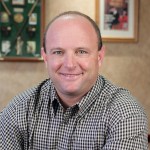J. Kale Flagg has made a pretty good success of himself over the years. Flagg is an alumnus of Yale University, and has hosted seminars on the secrets of success. J. Kale Flagg also serves as General Partner of the American Redevelopment Fund, a real-estate investment group that focuses on distressed property in the Western United States. J. Kale Flagg has given a lot of thought to the formulas for success over the years, and in this brief Q&A he provides some of his views on what makes a person successful.
Q: Looking back in history, who do you look up to for his or her success and business acumen?
J. Kale Flagg: I’d say that Andrew Carnegie is a perfect example. Carnegie moved over here from Scotland in the 19th century with pennies to his name and became one of America’s first billionaires at a time when staying a hotel cost about a nickel per night!
Q: What was Carnegie’s formula for success?
J. Kale Flagg: That’s a good question; it’s something that Carnegie himself reflected on a great deal.
Q: Didn’t Carnegie make a study of it?
J. Kale Flagg: Yes, he did. He hired a young man named Napoleon Hill, who went and interviewed men like Theodore Roosevelt, Henry Ford and William Wrigley. After two decades of research, Hill wrote Think and Grow Rich…
Q: What were Hill’s conclusions in the book?
J. Kale Flagg: Napoleon Hill broke it down into a formula of two groups: 97% who are the “worker bees,” and 3% who are the “rulers.” When the 3% control so much of the power and wealth, the 97% may wonder how things shook out that way, but that’s a topic for some other time.
Q: What is it that the 3% do differently?
J. Kale Flagg: Bottom line is that the 3% think differently then the 97%. The look at opportunity instead of requirements. Napoleon Hill talked about OPI (other people’s ideas), OPM (other people’s money), and OPE (other people’s efforts) all playing into the successes of the 3%.
Q: OPI, OPM, and OPE?
J. Kale Flagg: Yes, you could re-frame it as credit and investment, duplication and hard work, and a proven system. And if there’s one thing that ties many of those stories together, it’s the willingness to take big chances against measured odds.
Q: So what would be your takeaway, then?
J. Kale Flagg: Successful people don’t necessarily need to invent anything or make any grand discoveries. What they do is read the signs, get the lay of the land, and seize opportunities when the timing is just-so. They find or develop a great product at the right time, and then recruit and convince other people to get on board with you to help bring it to market.


